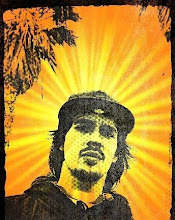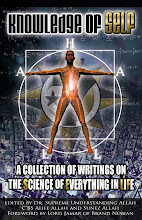 Todos las matematicas de hoy es conocimiento y poder.
Todos las matematicas de hoy es conocimiento y poder. Did you know....? How powerful imagery is in forming racists pretensions?
Adding on, in regards to the article I posted about the Chiquita Corporation. Let it be known and understand the the Chiquita Corporation is really the modernized name for the United Fruit Company. The United Fruit Company is the corporate giant that smashed through Central, South America and the Caribbean. The UFC is responsible for the horrible slavery-working conditions on banana plantations throughout the late 1800's, and early 1900's. Augustus Cesar Sandino (Sandinista party named in his honor), inspired by 'indigenismo', led a armed revolt against the U.S. economic interest that bloodsucked Nicaragua at that time (and still do. Viva Las Sandinistas!!!) and namely the thuggish prescence of the United Fruit Company.
The UFC/Chiquita pushed to tarnish the image of the Latin women with their adoption of "Chiquita Banana" as their logo. The logo was taken from Carmen Miranda, a Portuguese (not even Latina) born Brasiliana and one of the most famous Brasilians in contemporary history. Shakira Ramos, of Trinity College (www.trincoll.edu/~sramos/race.htm) writes:
"From the beginning Latin America is viewed as a land of opportunities for Anglos to make money and for adventures. It is seen as a "Paradiso". The Latinos are portrayed as uneducated, primitive and underdeveloped people; thus making them more vulnerable to Anglos demands and exploitations. An example of how Latinos are portrayed as ignorant is in the clip of the film The Americano (1916) when the question "Where's the US?" is asked and they respond, "Too far from Brooklyn!". Since the Latinos are viewed as uneducated and do not know better is seems as though it is the Anglos duty to educate them. In the clip Naked Jungle (1954) , it seems as if the Anglo women, who is admired by the Native Indians, would be doing the family of the young child a favor by taking him, implying that she would be able to give him things his family cannot give him.
"From the beginning Latin America is viewed as a land of opportunities for Anglos to make money and for adventures. It is seen as a "Paradiso". The Latinos are portrayed as uneducated, primitive and underdeveloped people; thus making them more vulnerable to Anglos demands and exploitations. An example of how Latinos are portrayed as ignorant is in the clip of the film The Americano (1916) when the question "Where's the US?" is asked and they respond, "Too far from Brooklyn!". Since the Latinos are viewed as uneducated and do not know better is seems as though it is the Anglos duty to educate them. In the clip Naked Jungle (1954) , it seems as if the Anglo women, who is admired by the Native Indians, would be doing the family of the young child a favor by taking him, implying that she would be able to give him things his family cannot give him.
Due to the fact that Latin America is seen as a place for adventure and opportunities it seems like the Anglos do not care for the people or for the beauty of the country instead they care for what the people can do for them and what the land can offer them like bananas and coffee. In Weekend in Havana (1941), the women is a great example of one who does not care but only wants to enjoy herself while in Cuba. When her husband is showing her the tourist attractions, she seems bored and ask to be entertained. The Latinos become objects of entertainment and servitude for the Anglos. In the clips the servants are typically Latinos, who are obedient to their masters and speak with thick accents.
Fruits and women become sexual objects creating an exotic atmosphere. The women in the films are the typical cantina girls that Keller describe as "Dancing, or possibly singing, certainly behaving in an alluring fashion is the essential trait of the cantina girl" (40). It is the beautiful women who are seen picking the bananas and coffee beans that attract more Anglo males to Latin America. The women in the film are portrayed as if they are enjoying themselves because they are singing and dancing while working. Bananas and other fruits become as a male in one of the clips described as a "Garden of Eden". "
Miranda and what she represented was actually despised by the upper class white oligarchy of Latin America. Her music and performance was laced with Samba and many more African elements. Without the shoepolish, Miranda was made into a seductive, South American sambo. Journalists of her time took every care to slander her in the media, reflective of the upper classes perspective and interests.
- Here is an article from www.brazzil.com that discusses more on Miranda's life, although not as much concerning her image and the perpetuation of racism by Chiquita Banana. I'm sure that the book discussed, along with the dvd and further research will prove very meriting. Do the knowledge...
"The tragic side of Carmen's life was exposed in Helena Solberg's documentary Carmen Miranda: Bananas Is My Business (1994). The film also examined the cartoonish and humiliating stereotype Carmen's American screen roles invariably conveyed: temperamental, childish, irrational Latin women, loose cannons who fired off rapid strings of malapropisms in heavily accented, stilted English."
- from http://www.brazzil.com/content/view/9511/41/
PAZ!
PAZ!




















173 comments:
Post a Comment